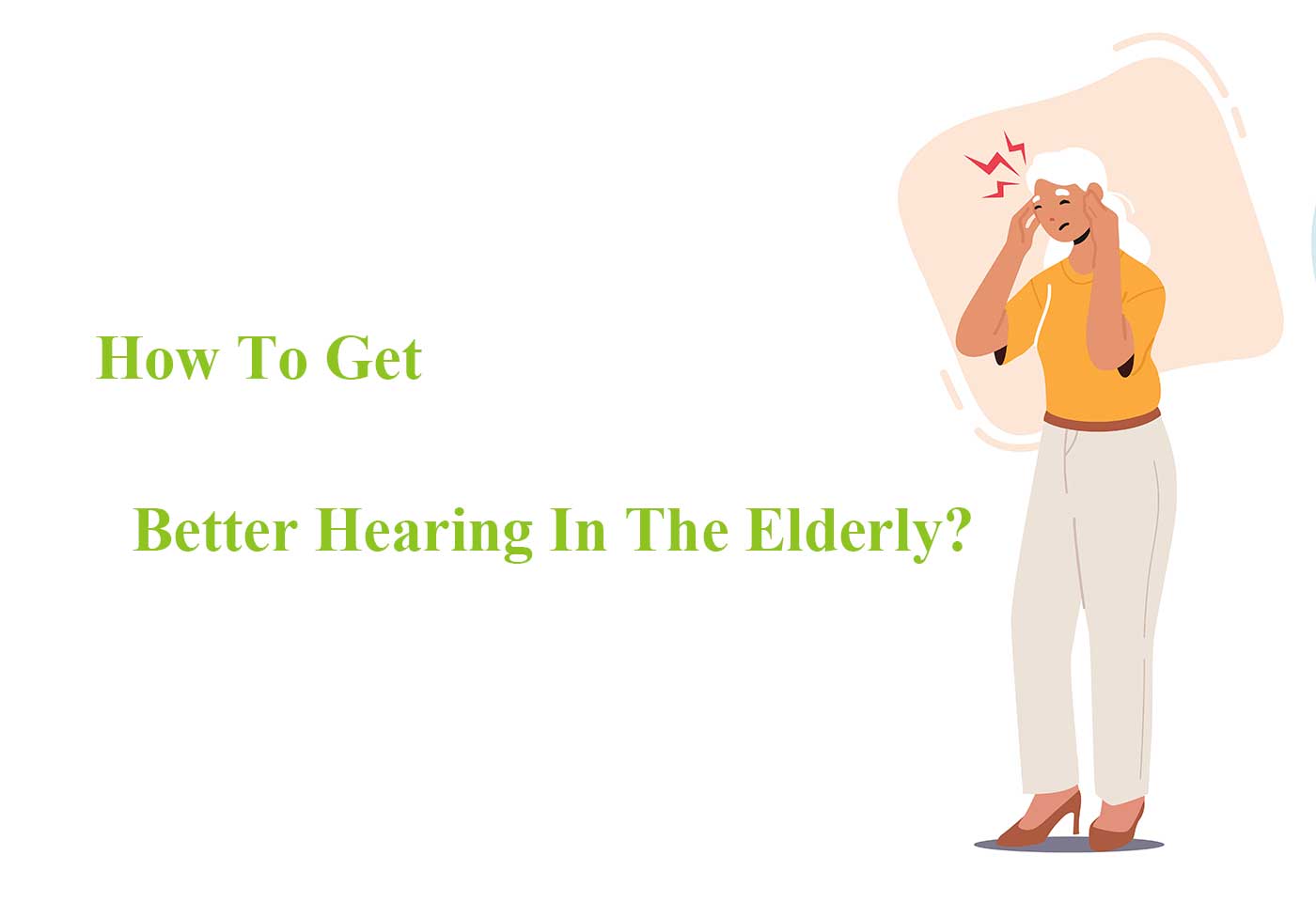
How To Get Better Hearing In The Elderly?
Exposure to loud environments, becoming older, certain diseases, and genetics all have a role in the development of hearing loss. And communicating with loved ones can be challenging for those with hearing loss. They could have problems following a doctor's orders, reacting to alerts, or even hearing security systems and sirens.
Hearing loss affects around one-third of individuals aged 65 to 75, and almost 50% of those aged 76 and more. However, some individuals can be unwilling to confess they get a hearing problem.
Depression and social isolation are prevalent among the elderly who struggle to hear because of the accompanying feelings of frustration and embarrassment. Older people's inability to hear effectively contributes to the common misconception that they are unable to understand, respond to, or cooperate with others.
Ignoring or failing to address hearing loss in the elderly might cause it to worsen. Get your ears checked if you're having trouble hearing. Helpful therapies include hearing aids, specialized training, medication, and even surgical intervention.
Types of Hearing Loss
Multiple disorders may cause diminished hearing. There is a continuum from minor loss when only high-pitched noises like female's and child's voices are lost, to utter deafness.
1. Sensorineural hearing loss
The internal ear and nerves are harmed due to sickness, accidents, exposure to extremely loud sounds, or some other causes. In most cases, this kind of hearing loss is irreversible because of the harm done to the nerves and tissues in the ear.
2 Conductive hearing loss
If there is anything blocking the ear canal, the sound waves can't access the eardrum and reflect. This might be earwax, an inflammation, or a tumor. When the blockage is removed, hearing usually returns to normal.
3. Mixed hearing loss
Such mixed conductive and sensorineural hearing loss, for example, might arise from a blockage in the auditory pathway and progress to nerves or tissue injuries due to, say, a chronic infection.
The effects of hearing loss on one's happiness and wellness may be devastating. If you want to protect your hearing, there are things you should do.
How to get better hearing ?
Read on for advice on how to get better hearing by keeping it intact.
1. Keep your ears dry

Due to ear diseases and wax accumulation, which are exacerbated by surplus moisture, hearing loss may occur in older adults. After getting out of the pool or shower, pat your ears dry with a napkin so that water doesn't become trapped in there.
2. Turn down the volume
Reducing the amount of background noise is a simple approach to give seniors’ ears a break and protect their health. Noises at or above 85 dB may cause permanent hearing loss; avoid them if at all feasible. If that's not possible, then you should continuously use some kind of ear protector to safeguard your hearing.
3. Don't smoke
For seniors who needed further convincing to quit the habit, studies show that smoking increases one's chance of hearing loss by over 100%. That's because tobacco and monoxide both reduce the amount of oxygenated blood reaching the cells in your ear, making it more difficult for them to stay healthy.
Nicotine in cigarettes aggravates preexisting middle ear dysfunction and damages the middle ear's delicate membrane. Some professionals think it could tamper with your brain's ability to receive signals from your auditory nerves.
4. Be cautious with medications
Older adults should consult a physician about the possibility of hearing loss as a secondary effect of any new drugs or supplements they're considering taking.
5. Meditation

Meditation is becoming more popular as a method for bettering seniors’ hearing health. This is because the brain receives more oxygen when you slow down and breathe deeply, making it easier to pick up on little noises. While meditation is more of a cerebral challenge than a muscular one, it may be useful for those who want to improve their ability to actively participate in their auditory environment.
6. Yoga
Many seniors with hearing loss have found that regular yoga practice has helped them hear better. Postures of relaxation and stretch, such as the downward dog, increase the flow of oxygen-rich blood to the brain, which could improve hearing. You can practice yoga on your own without a trainer if you have a mat and a quiet place in your home and a routine that includes warming up.
7. Be aware of excessive ear wax buildup
Cerumen, or ear wax, is a protective substance produced by your body to keep bacteria, germs, and other unwanted visitors out of your ear canal. A barely audible or distorted sound may result from an accumulation of ear wax. Do not attempt removal on your own; doing so may result in injury to the ear’s sensitive membrane. You should speak with a physician instead to discuss treatment alternatives.
8. Avoid cotton swabs and other objects
Cotton swabs are not the only thing you should avoid putting in your inner ear; you should never put anything in there. Older adults might end up with a painful eardrum rupture and permanent hearing loss if you perform that.
9. Vitamins

Getting enough of the correct vitamins has been demonstrated to boost older adults’ hearing ability. Vitamins and minerals including folate, Vitamin b, calcium, and zinc all help to enhance hearing and overall health. Take a dietary supplement to maximize its benefits, but talk to your physician first, particularly if you're also consuming prescription drugs.
10. Keep your ears warm
It's a good idea for older adults to wear a helmet or earmuffs to maintain their ears warm and protected from the wind.
11. Go for a walk in the wild.

Walks on the seashore or in other natural settings with minimal interference from human activity are yet another solution. Put your attention on your circumstances and make a note of everything audible, from the sound of birds singing to the sound of the wind whipping. Perform this exercise on a daily basis for a few days in a row in order to progressively become more sensitive to the background sound.
12. Get regular hearing screenings
Hearing loss may be reversed in many cases if it is caught and treated in its initial stages. In addition to helping your physician spot abnormalities in your hearing sooner, the baseline information provided by a regular hearing test is crucial.
13. Hearing aids
Hearing aids are necessary for some elderly individuals because they are the only method discovered to effectively control severe hearing loss. We have, thankfully, moved beyond the era of enormous horns and visible equipment.
You may pick from a range of types and designs of hearing aids based on the form of hearing aid that has been prescribed to you by your physician or another hearing healthcare expert. This means that you will be able to look fantastic while also hearing easier!
Ending
If you're having trouble hearing, your first move should be to see a doctor for advice on how to get better hearing. Today, there are various treatment options for hearing loss, so it need not negatively impact daily life.
It's possible to feel well at work, in social situations, and in your personal life by integrating several treatments. Moreover, regardless of the treatment of how to get better hearing, maintaining a positive attitude is the most important prerequisite.

